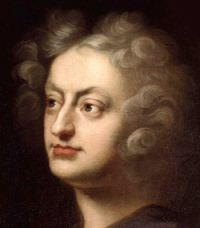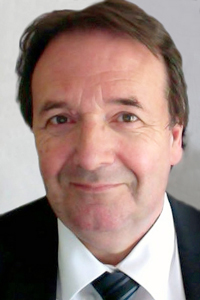by Daniel Hathaway

He also built a stylistic bridge between the music of the Renaissance and the Baroque, writing pieces both for consorts of viols and the new orchestra of “Twenty-four Violins” with which the English court sought to keep up with developments in France.
David Acres and the twenty singers of Contrapunctus Cleveland will sing a broad survey of the composer’s music in their program “The Remarkable Mr. Henry Purcell” on Sunday, October 5 at 3:00 pm in Trinity Cathedral (more program and ticket information here). The program will include Anglican service music for Matins and Evensong, English verse anthems, excerpts from royal odes and funeral music, a rare Latin motet, and songs over a ground bass.
How did Acres develop his fascination with Purcell? “Initially it was very personal,” Acres told us in a telephone conversation. “I was a boy chorister at Exeter Cathedral from the age of 7 to 13, and his music was foremost in the planning of services there. The music director, Lionel Dakers, had a love affair with Henry Purcell, and it remained with me.
“I think the intrigue for me was that he was 36 years old when he died — one year older than Mozart,” Acres said, admitting that he had had a lot of time to think while sitting in the choir stalls “listening to endless sermons. Though he was a great boy treble, he didn’t do much composing until his teens. Then in the next 16 to 20 years, he wrote the most amazing music. What if he’d lived on? How much more might he have done?”
David Acres had the idea of producing a concert of Purcell’s music in the States after a very successful concert in England last year with the countertenor James Bowman. “I thought it would be a great thing to explore over here, where people know Purcell, but don’t perform his music a lot. I don’t think I’d like to attend a whole concert of music by Byrd, but Purcell has so many different styles — from plangent things like the Queen Mary funeral sentences to the joy of I was glad and Rejoice in the Lord — that I know it will keep people interested throughout the program.”
Purcell’s brief but productive burst of creative energy has had a strong effect on British composers centuries later. “Britten and Tippett were very much involved in his music,” Acres said, “You can see Purcell in their compositions, and like Purcell, Britten also covered such a huge range of styles.”
On Sunday, listeners can imagine transporting themselves back to the late seventeenth century and hearing Purcell’s music for the first time after the disruptions of the Commonwealth. “Purcell just set music alight after it was depressed for so long,” Acres said. “After the lifting of that Puritan view of music, Purcell just flourished and he was at the forefront of everything.”
Published on ClevelandClassical.com October 2, 2014.
Click here for a printable copy of this article.



